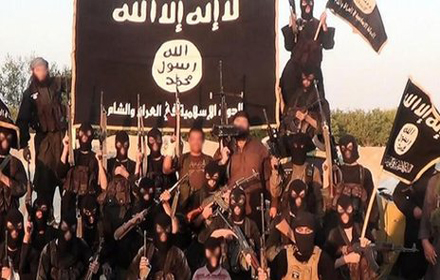Analysts suggest a threat to the West amid the triumph of Taliban armed groups in Afghanistan, which forced Afghan president Ashraf Ghani to flee, leaving about 38 million people anguished. Such a victory means that the Taliban groups have become a formidable force that managed to defeat the country’s military organizations and showed prowess in taking over cities within a short period. Such an occurrence can be regarded as evidence for organization and rebuilding that has been taking place behind the scenes in the Taliban’s camp and might mean that the rebuilding was active for a very long period without the government’s knowledge or the security services’ agents tapping into it.
Rebellious military groups are well-known for hibernating themselves in the face of defeat and recuperating, then come out with surprise attacks, just like what happened in Afghanistan with the Taliban armies posing a huge threat to national security and successfully toppling the government. Due to that, analysts have contended how other extremist groups have been rebuilding out of sight and might reappear with intense effects to the West. Afghanistan is home to diverse extremist movements that indulge in violent acts, and this seems to be the norm in the territory. Groups such as Isis and Al-Qaeda once dominated the country, as shown by history and caused chaos all over the world.
After the withdrawal of American soldiers from Afghanistan, the Taliban gained a lot of ground and defeated all national security. The removal of Western troops is expected to be concluded on 11 September this year. The US military invasion in the country was done to curb the perennial problem of extremists’ movement, which launched attacks against the West. The 9/11 attacks on US soil necessitated the invasion, and the US military sought to put a cap on any future problems enacted by Al-Qaeda and other militants operating outside of the Afghan code of conduct. With the fall of Kabul and the Taliban “take over” mission completed, concerns have been raised about breeding extremist movements once more, especially with the Western troops completely removed by early September.
Taliban leaders attributed their success to support they got from about 20 terror groups, which might point to huge extremist groups joining together for a common goal. Unions like those are a danger to the world, especially when they involve militants who are not controlled by a responsible nation and answer their high power. Former UK counter-terrorism chief and senior adviser to the Counter Extremism Project, A New York think tank, Sir Ivor Roberts, said, “This is a moment of extreme danger for the West.” He added that “This international catastrophe is coming straight to our door, in the form of an international terrorist threat” [Source].

Sir Roberts noted how the West is under terrorism threat which might equate to the 9/11 attacks, and more problems will be enacted by the rise of ISIS and Al-Qaeda. He explained that “Alongside the power, the Taliban has demonstrated over the last few days and the potential extremism potentially brewing beneath the surface, the UK and the West will bear the consequences.”
The West was very active in fighting terror groups, so a push-back by these groups is expected, especially given the current situation in Afghanistan where the Taliban is sitting on the high throne. Head of regional operations for Conflict Armament Research, Justine Fleischner, was interviewed by Metro.co.uk, and she said, “We are likely to see an Al-Qaeda resurgence and the victory [Taliban’s takeover] has already been a major boost to morale among global jihadi groups spanning the Middle East and Africa.”
She further explained that “While it might take some time for these networks to truly regroup, the absence of US and UK eyes and ear on the ground in a very unpredictable and unstable region is likely to seriously undermine counterterrorism efforts globally.”
She alluded to the UN reports, which revealed a long history of the relationship between Taliban and Al-Qaeda, strengthened by intermarriages and bonding at war fronts. These ties were also traced back to Osama bin Laden’s reign, where he crafted 9/11 plans while staying in Afghanistan. Because of this, Al-Qaeda is likely to rise again since the Taliban has the country under its wing. UK defense secretary Ben Wallace cited how failed states were providing sanctuary for extremists, and he said “Al-Qaeda will probably come back” given the Taliban’s success in Afghanistan [Source].
From an observer’s perspective, the West is justified for being cautious because these terror groups launched several attacks on the Western territory and might need to exert more effort in counter-terrorism units just in case an attack brews. Currently, negotiations are ongoing between Taliban and government officials, so the West awaits to see the new setup that will be agreed upon and assess if it poses more threats or not.






































